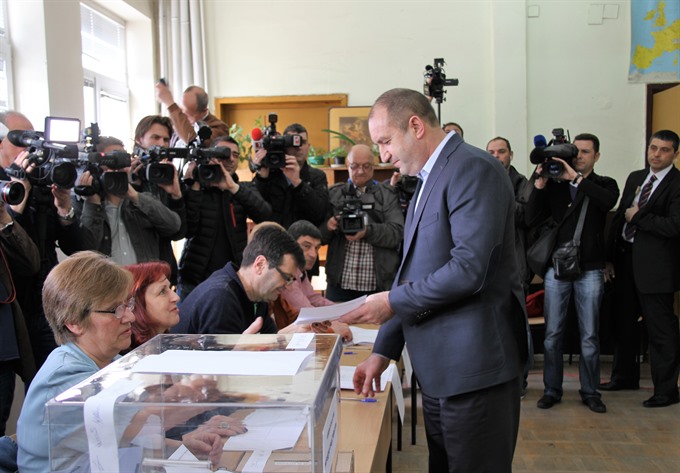 World
World

Bulgaria’s veteran political bruiser Boyko Borisov is due on Monday to begin tough talks to form a lasting government and become prime minister for the third time.
 |
| Bulgarian President Rumen Radev (right, front) attends the voting at a polling station in Sofia, capital of Bulgaria, on Sunday. The center-right GERB party is leading in the parliamentary elections in Bulgaria on Sunday, winning about one third of the votes, according to exit polls announced at the Bulgarian National TV channel. — XINHUA/VNA Photo |
On Sunday Borisov’s pro-EU centre-right GERB party came first in a snap election in the European Union’s poorest country with 33 per cent of the vote, according to projections from polling firms
Borisov, a former firefighter and bodyguard, saw off a stiff challenge from the Socialist Party (BSP), seen as closer to
"I hope we can ensure the rapid formation of a government that responds to the wishes of the people and to the grave international situation," Borisov said late on Sunday.
But whether the 57-year-old can form an administration - and one that stays the course and is effective, unlike his previous two attempts – remains to be seen.
In the first half of next year,
Borisov has long dominated national politics, serving as premier from 2009 to 2013 and again from 2014 to 2017.
But both times Borisov quit early, first in 2013 after mass protests and then last November after his candidate for the presidency was beaten by an air force commander backed by the BSP.
And his reform efforts, in particular in meeting Brussels’ demands to tackle corruption and organised crime, failed to get off the ground both times.
In the campaign, Borisov ruled out a tie-up with the centrist Movement for Rights and Freedoms (MDL) party representing
Potential partners include the United Patriots, also on some 9.5 per cent, and Veselin Mareshki, a charismatic businessman who likes being called the Bulgarian Donald Trump.
It is unclear however whether Mareshki’s party, Volya ("Will") cleared the 4-per cent hurdle needed to gain seats in parliament. Official results is due from Monday. — AFP




